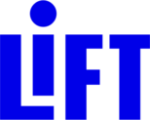One day when I was in kindergarten, I got in an argument with a classmate and it almost ruined me. I can no longer remember what the argument was about (Maybe sharing crayons? Or deciding who was taller?), but I do remember throwing a tantrum the next morning, begging my parents not to take me back to school. By the time I arrived in my classroom, I was absolutely miserable. A grumpy friend isn’t much fun to play with, and my classmates were happy to leave me alone, adding to my growing list of reasons to dread kindergarten. By the end of the week, I was caught in a vicious cycle: throwing tantrums every morning, alienating my peers and deepening my hatred of school. I knew in the depths of my heart that the only solution was to drop out at age five, and I couldn’t understand why my parents were so intent on denying me the only means of escape.
My family jokingly refers to this period as the time when I was “evil,” but back then I did not find the situation funny. I enjoyed learning how to read and write so much and I couldn’t understand why I couldn’t also enjoy school. But for my parents and siblings, the solution was comical in its simplicity: just stop being so mad! After a couple of weeks of this funk, another classmate one day just played with me. Shortly after I was smiling, and then laughing, and all of a sudden, I could enjoy school again. Without her intervention who knows how long my misery would have lasted. Perhaps my parents would have given in and let me drop out. But a far more likely scenario is one where my hatred of the school environment would have resulted in me disengaging from it, and consequently from learning.
When I look at the difference LIFT hopes to make in the lives of its parent members, I am vividly reminded of that time in my childhood. To everyone else looking in, the answer was simple: suck it up, pick yourself up, and don’t give up. This is a similar view society often takes on poverty. The steps seem so straightforward: find a job or get a degree; save money and spend less. It is so easy to forget, or ignore, the many intermediary stages one must complete to reach these goals. How does one get a degree while working two jobs and caring for children? How does one navigate the social services system from behind a language barrier? These are just some of the considerations that influence the path from poverty to stability. But the most important factor in this process—one that is critical to achieving these goals—is the presence and support of people. I would not have made it very far, or anywhere at all, without that one friend in my kindergarten class. Likewise, it is nearly impossible to break the bounds of poverty alone. We all need emotional, physical, or financial support to carry us through the times when nothing seems to go our way. LIFT recognizes that low-income families are no different.
Sixteen years after someone broke my vicious cycle, I am proud to be joining LIFT, an organization whose mission is empowering families to break the cycle of inter-generational poverty. To do so, it steps in to break the many cycles that can leave families without hope. Dipping into the savings account to pay rent today can make paying for an emergency next week more difficult. LIFT’s goal fund, a system of cash transfers distributed as parent members work toward goals, can ease that predicament. Choosing not to pursue an education because those hours have immediate cash value at work might hold a member back from a higher-paying or more fulfilling career. LIFT’s coaches can help parents develop plans to make education and work possible. Without support in facing cycles of instability like these, a caregiver or parent can quickly find herself on track for a lifetime of financial hardship.
But the most insidious cycle that LIFT hopes to break is the widest reaching one: the cycle of inter-generational poverty. According to one study conducted by the National Center for Children in Poverty, people who experienced the high-stress, low-resource environment of poverty at any point in childhood were more than three times as likely to be poor at age 30 than those who never experienced poverty. Poverty in early childhood significantly reduces a child’s chances of completing a high school education and significantly increases the likelihood of developing heart disease, diabetes, substance abuse and depression. When parents come to LIFT with career and financial goals, our coaching system throws a wrench in these debilitating cycles by creating a constructive space and actionable plan to reach these targets. LIFT empowers families to reclaim the power of the cycle, so caregivers and their children can build a lifelong rhythm of setting, reaching and surpassing goals.
Unlike my vicious cycle of bad school days, the cycle of poverty is a product of our society and must be addressed by us all. One thing I love about LIFT is its recognition of the incredible opportunity to improve all of society when we help those most in need. How much better our world could be if everyone could focus on creating the next great innovation, not just on surviving the next day. People are our largest untapped resource; people are what LIFT offers and people are who LIFT helps. This summer I am excited to join this family of passionate individuals who work each day to help families redefine their own lives.
This blog post was written by Sydney Jordan, a 2018 summer intern at LIFT’s national office.
